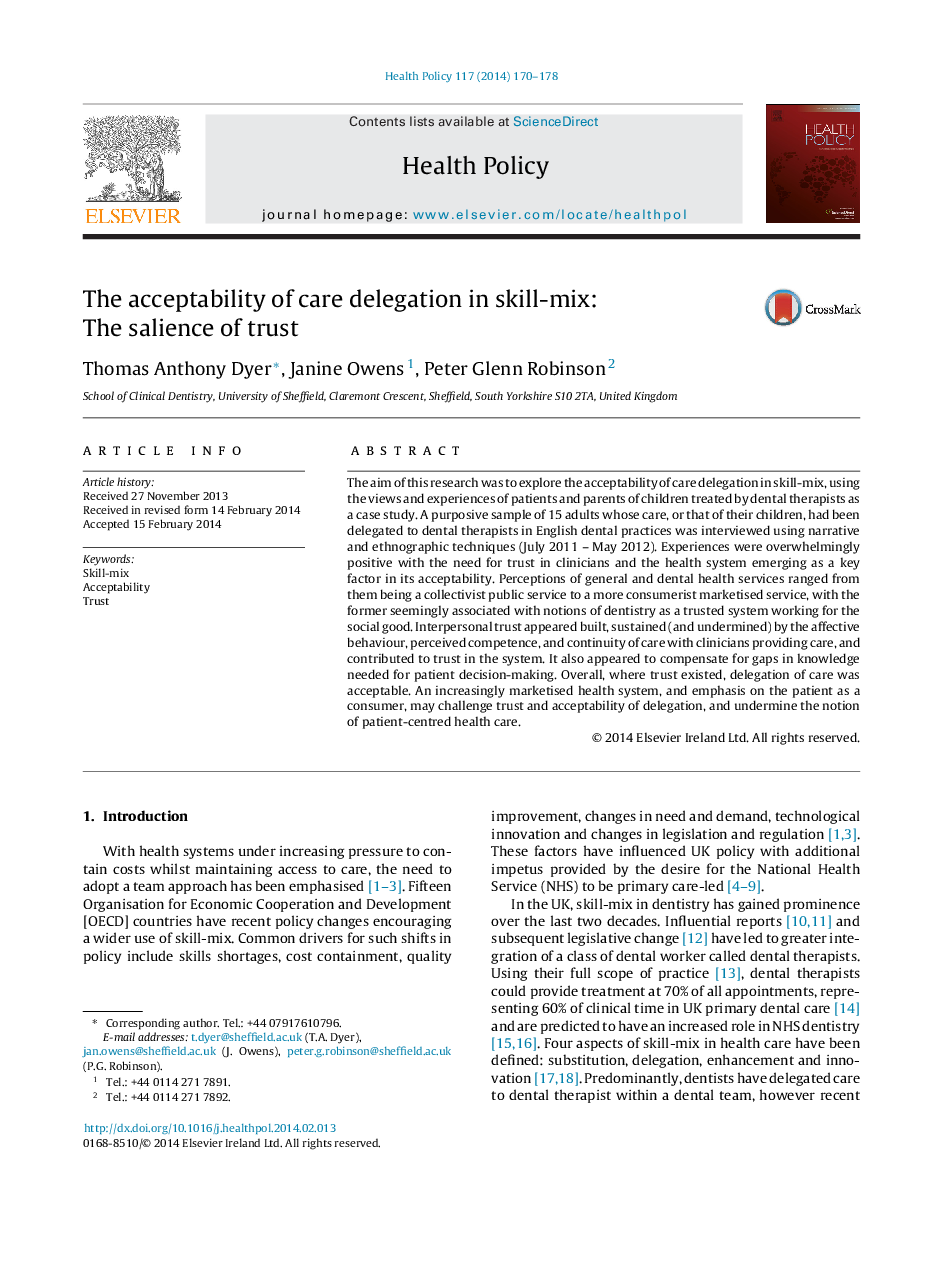| Article ID | Journal | Published Year | Pages | File Type |
|---|---|---|---|---|
| 6239807 | Health Policy | 2014 | 9 Pages |
The aim of this research was to explore the acceptability of care delegation in skill-mix, using the views and experiences of patients and parents of children treated by dental therapists as a case study. A purposive sample of 15 adults whose care, or that of their children, had been delegated to dental therapists in English dental practices was interviewed using narrative and ethnographic techniques (July 2011 - May 2012). Experiences were overwhelmingly positive with the need for trust in clinicians and the health system emerging as a key factor in its acceptability. Perceptions of general and dental health services ranged from them being a collectivist public service to a more consumerist marketised service, with the former seemingly associated with notions of dentistry as a trusted system working for the social good. Interpersonal trust appeared built, sustained (and undermined) by the affective behaviour, perceived competence, and continuity of care with clinicians providing care, and contributed to trust in the system. It also appeared to compensate for gaps in knowledge needed for patient decision-making. Overall, where trust existed, delegation of care was acceptable. An increasingly marketised health system, and emphasis on the patient as a consumer, may challenge trust and acceptability of delegation, and undermine the notion of patient-centred health care.
